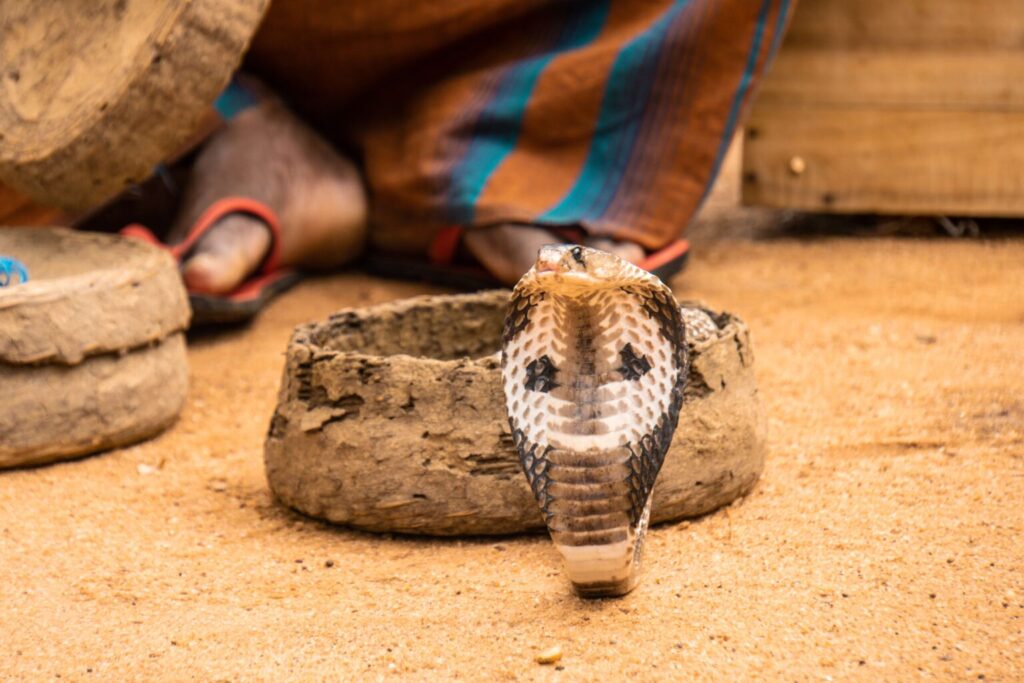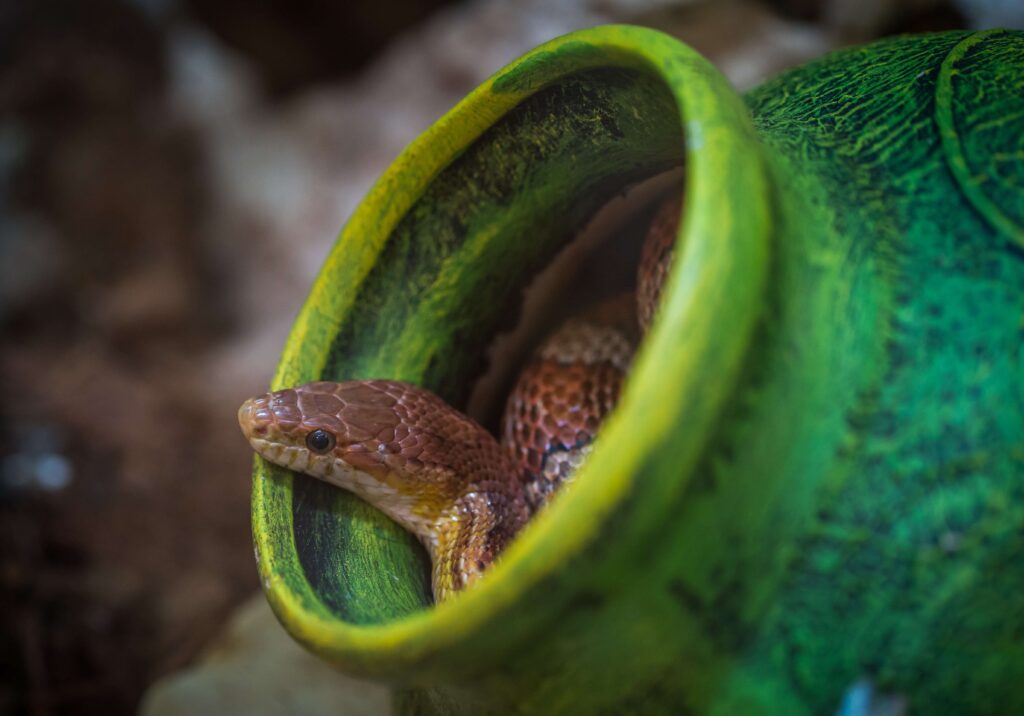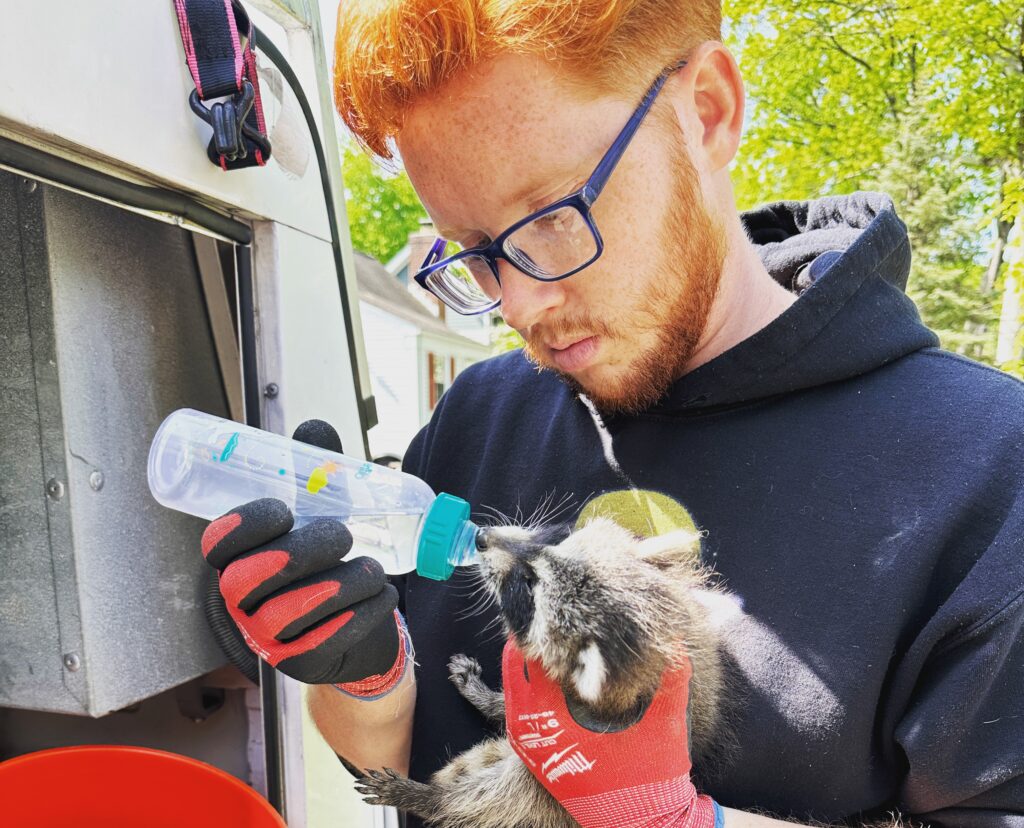Snakes in New Jersey, though often misunderstood, play an essential role in our local environment. These reptiles are natural regulators of the ecosystem, helping control populations of rodents and other small animals. By keeping these numbers in check, snakes indirectly protect crops, reduce the spread of rodent-borne diseases, and contribute to a healthy, balanced ecosystem.
At Kritter Catchers, we’re dedicated to a respectful, balanced approach to snake control. We recognize the vital ecological role snakes play, while also addressing concerns about safety. Our goal is to help New Jersey residents coexist safely with these often-misunderstood creatures by using humane, effective methods that minimize risk without harming the local snake population.
Key Takeaways
- Snakes play a vital role in New Jersey’s ecosystem by controlling rodent populations, which helps protect crops and reduce the risk of rodent-borne diseases.
- While often viewed with fear, many snakes in New Jersey are non-venomous and harmless, contributing positively to the environment rather than posing a threat to humans.
- Homeowners can reduce snake encounters by maintaining a tidy yard, eliminating potential hiding spots, and sealing entry points to their homes and gardens.
- Effective snake control involves humane methods, such as educating the community about snakes and employing non-lethal removal and exclusion techniques.
- Engaging professionals like Kritter Catchers can provide tailored solutions for snake management, ensuring both public safety and the conservation of these essential reptiles in the ecosystem.
Why Snake Control Matters In New Jersey
Snakes are natural predators of rodents and other small animals. By controlling these populations, they help protect crops from damage and reduce the spread of diseases carried by rodents. Without snakes, rodent numbers could skyrocket, harming agriculture and public health. For example, unchecked rodent populations can lead to significant crop losses for farmers, which in turn affects local economies and food supply chains. In urban areas, rodents can damage infrastructure, contaminate food supplies, and pose health risks to residents. So, while they may seem like a nuisance at times, snakes actually provide a significant service to both the environment and the community.
In New Jersey, effective snake control not only contributes to a healthier ecosystem but also promotes community safety and well-being. By keeping rodent populations in check, snakes help minimize the risk of diseases that can affect both humans and pets, such as hantavirus and leptospirosis. Furthermore, a balanced ecosystem enhances biodiversity, creating a richer environment for all species, including beneficial insects and birds. Educating the community about the importance of snakes and implementing humane control measures fosters a culture of coexistence, allowing residents to appreciate the value these reptiles bring to our environment. In doing so, we empower New Jersey communities to protect their health, agriculture, and natural resources while embracing the essential roles all wildlife play in our shared ecosystem.
Practical Snake Control Methods
Habitat Modification: Keeping your yard tidy can discourage snakes from settling nearby. Clear away tall grass, thick vegetation, and piles of wood or rocks where they might hide. Seal any gaps around your home’s foundation, walls, or windows, as these could serve as entry points.
Natural Predators: Encouraging the presence of birds of prey, like owls and hawks, can naturally control rodent populations. These birds help keep the snake food supply low, meaning fewer snakes are drawn into human areas.
Exclusion Techniques: Snake-proof fencing is a simple way to keep snakes out of your yard and garden. This type of fencing creates a physical barrier that helps prevent them from getting too close to your home.
Professional Assistance: Sometimes, professional help is the best way to handle snake control safely. Kritter Catchers offers humane, expert snake management, providing solutions tailored to your property and needs.

The Bottom Line
Balancing snake conservation with safety is crucial. Snakes play an important role in maintaining a healthy ecosystem, and with the right approach, humans and snakes can coexist peacefully. Kritter Catchers is here to support New Jersey residents with practical, effective methods to ensure a safe and balanced environment for all.
Frequently Asked Questions about Snake Control
Why should we protect snakes in our area?
Snakes play a critical role in controlling rodent populations, which helps prevent crop damage and the spread of diseases. Protecting snakes not only supports biodiversity but also contributes to a healthier ecosystem, benefiting both humans and wildlife.
Are all snakes in New Jersey dangerous?
No, not all snakes in New Jersey are dangerous. In fact, many species are non-venomous and pose little to no threat to humans. While there are venomous species, such as the Eastern Copperhead and Timber Rattlesnake, encounters with them are rare, and they typically prefer to avoid human interaction.
How can I prevent snakes from entering my yard?
To deter snakes from your property, keep your yard tidy by removing tall grass, piles of leaves, and debris where they might hide. Additionally, sealing any gaps in fences or buildings and using snake-proof barriers can create a less inviting environment for these reptiles.
What should I do if I encounter a snake?
If you come across a snake, it’s best to keep your distance and allow it to move away on its own. Most snakes are not aggressive and will only bite if they feel threatened. If the snake is in a location where it poses a risk to people or pets, consider contacting a professional for safe removal.
How can Kritter Catchers help with snake control?
Kritter Catchers offers humane and effective snake control services tailored to your needs. Our experienced team can assess your property, provide guidance on habitat modifications, and safely remove snakes if necessary, ensuring a balanced coexistence between you and your local wildlife.


